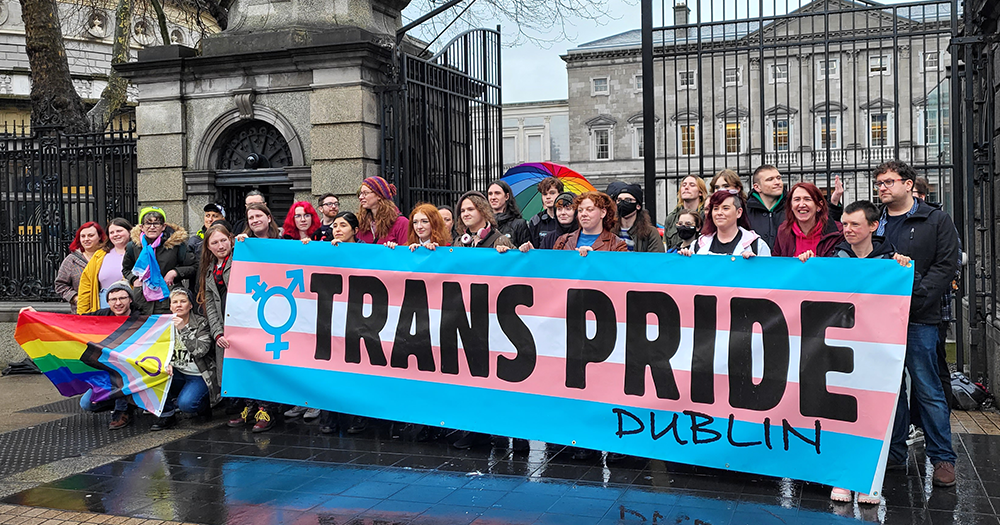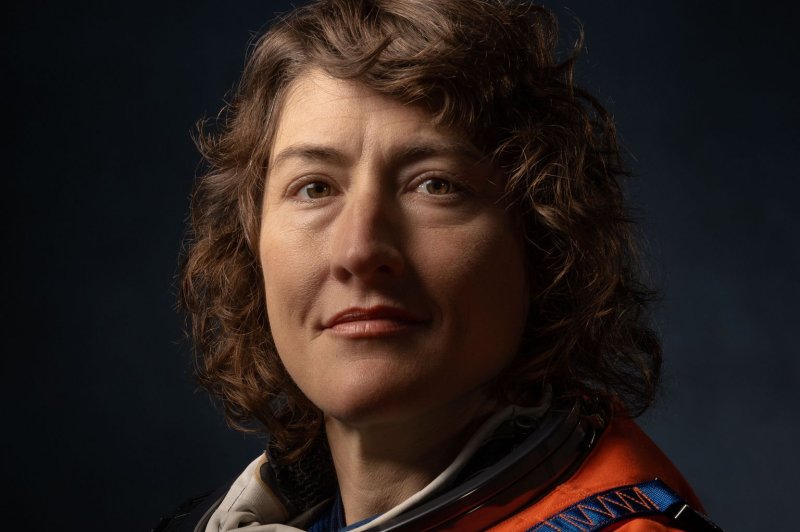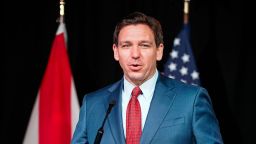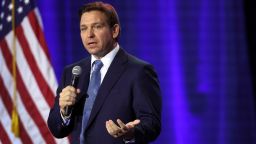By ANDREW DeMILLO

1 of 4
People march around the Nebraska state Capitol during a Transgender Day of Visibility rally, Friday, March 31, 2023, in Lincoln, Neb. (Larry Robinson/Lincoln Journal Star via AP)
Anti-transgender rhetoric and disinformation in the days following the shooting at a Nashville Christian school that killed six people have heightened the fears of a community already on edge amid a historic push for more restrictions on trans people’s rights this year.
Authorities haven’t shared any evidence linking Audrey Hale’s gender identity to the motive for the attack, which killed three children and three adults at The Covenant School last week.
Yet right-wing commentators, politicians and other figures have cited the shooting as they’ve shared false claims of a rise in transgender mass shooters and suggested that the fight for trans rights is radicalizing people.
Advocates worry the comments are further jeopardizing transgender people by turning them into scapegoats, at a time when they’re speaking out against a wave of bills focused on trans people in statehouses across the country.
“We’ve certainly seen the uptick in transphobic rhetoric in the past week, even directed towards our own public platforms, and there have absolutely been community members that are wearier of being in the public eye,” the Trans Empowerment Project, an advocacy and support group based in Tennessee, said in a statement
The rhetoric has come even from members of Congress, with Republican Rep. Marjorie Taylor Greene questioning whether the shooter was on hormone replacement therapy or medications to treat mental illness.
Donald Trump Jr., the former president’s son, suggested the FBI and Justice Department monitor “violent factions within the trans community.” In Idaho, the head of the state Republican Party invoked the shooting as she called for the governor to sign legislation banning gender affirming medical care for minors.
For hours Monday, police identified the shooter as a woman. Later in the day, the police chief said Hale was transgender. In an email Tuesday, a police spokesperson said Hale “was assigned female at birth” but used masculine pronouns on a social media profile.
Police have said Hale was under a doctor’s care for an undisclosed emotional disorder and was not on the radar of police before the attack. Hale was fatally shot by police at the school Monday.
Marchers rally on Transgender Day of Visibility
People across the country are gathering as part of a series of events to build support for transgender rights amid what they denounce as an increasingly hostile environment. (March 31)
The disinformation surrounding the shooting doesn’t surprise Imara Jones, a transgender woman and creator of “The Anti-Trans Hate Machine,” a podcast that focuses on the spread of disinformation about transgender people.
Jones noted how quickly false posts spread online falsely identifying a transgender woman as the shooter who killed 19 children and two teachers at a school in Uvalde, Texas last year.
“This disinformation, one of the things that it is doing is further isolating, stigmatizing and demonizing trans people, allowing us to be targeted by all forms of violence, both from the state and from individuals,” Jones said. “That’s what the disinformation is doing.”
Several hundred bills restricting transgender people’s rights have been introduced in statehouses this year, including a resurgence of bathroom bills and bans on gender affirming care for minors. Transgender people have also faced increasingly hostile rhetoric from lawmakers who are considering these proposals.
Some of the most stringent measures have been enacted in Tennessee, where the Republican governor has signed into law restrictions on drag show performances and a ban on gender affirming care for minors. A federal judge on Friday blocked the drag show ban from taking effect.
Many of the restrictions are being advanced by Republican lawmakers who say they’re protecting children.
A large number of transgender people say they regularly face verbal and physical abuse. A Washington Post-KFF survey of transgender adults conducted late last year showed that 64% of trans adults say they have been verbally attacked because of their gender identity, gender expression or sexual identity, and 25% say they have been physically attacked.
“There is a vocal minority of people who try to stoke fear of what they don’t understand, who label trans people as ‘other’ and tell us we don’t belong,” the National Center for Transgender Equality said in a statement. “Because of this, trans people, especially trans women of color, face very real threats and violence.”
The climate has already been fraught for trans people like Jessica Disney, who’s appeared regularly at Arkansas’ Capitol to testify against anti-transgender measures.
“Anytime there’s a spike in the rhetoric for whatever thing that is latched onto, it is immediately more taxing and truly terrifying about living here in the South, living here in Arkansas and what has already happened to me and other people being encouraged to act out,” Disney said.
Advocates say the disinformation and focus on the shooter’s gender are distracting from needed discussions about how to prevent mass shootings.
“Extremist politicians and pundits are focusing on speculations about the shooter and fear-mongering about transgender people because they have no interest or willpower to offer real commonsense solutions to America’s gun problem,” Jay Brown, the Human Rights Campaign’s senior vice president for programs, research and training, said in a statement.
Despite the fear, the Trans Empowerment Project said it’s seen an “amazing push to act” on addressing gun violence and building allies with the community.
“More than anything, we’re amazed by the resilience of our community,” the group said.
Sami Morris, a nonbinary resident of Durham, North Carolina, said the anti-trans “finger pointing” that followed the shooting in their home state of Tennessee made them feel “more unwelcome in the South” than they did already. They criticized North Carolina Republicans Wednesday for overriding the Democratic governor’s veto of legislation loosening gun access just two days after the Nashville shooting.
“The anti-trans rhetoric has become so pronounced that it’s drowning out mourning the victims,” Morris said. “It’s drowning out necessary calls for gun control and important conversations about what might actually make schools safer.”
The anti-trans rhetoric was on display as Dylan Michael Turner, 27, stood at a Transgender Day of Visibility event Friday outside the South Carolina State House.
“Terrorist attack!” a passenger in a car passing by yelled at Turner, a transgender man from Columbia, holding a sign that said “TRANS RIGHTS ARE HUMAN RIGHTS.”
Turner said he had received six or seven such comments, but said the supportive messages he got far outweighed the hateful ones.
“I wish that (cisgender heterosexual) people would have a chance to get to know trans people and that would sway their view of things,” he said.
___
Associated Press writers Hannah Schoenbaum in Raleigh, North Carolina and James Pollard in Columbia, South Carolina contributed to this report.
Community demands action at Transgender Day of Visibility demonstration in Dublin
Crowds gathered alongside Trans & Intersex Pride Dublin to advocate for trans rights and fight back against oppression.
IRELAND3 APRIL, 2023. WRITTEN BY NICOLE LEE.
On Friday, March 31, crowds gathered in front of the Dáil to mark Transgender Day of Visibility. The day is meant to give trans people a voice to share their struggles, advocate for their rights and fight back against oppression. This year’s event was organised by Trans & Intersex Pride Dublin.
Despite the rainy weather, the event was well-attended. Each speech emphasised how the trans community remains united, strong and resilient despite an increase in violence against the LGBTQ+ community and how trans stories continue to be misrepresented in national debates.
Transgender Day Visibility speakers included Jenny Maguire, the Gender Equality Office for Trinity College Dublin’s Students’ Union, and Lilith Ferreyra-Carroll from TENI (Transgender Equality Network Ireland), an incredible activist who recently became the first transgender person to speak at the Houses of the Oireachtas.
The next speaker was Molly, who gave a powerful speech describing the role transphobia had in the loss of her close friend, Eden Knight, who tragically died by suicide after being denied gender-affirming care, forced to de-transition and subjected to conversion therapy.
The founder of Trans & Intersex Pride Dublin, Ollie Bell, spoke about news outlets misrepresenting trans experiences, the loss of Brianna Ghey, and how Ireland continues to rank as the worst country in Europe for trans healthcare, behind Poland and Hungary. “We are forced to wait almost a decade to just step through the front door of the National Gender Service. When we’re there, we’re interrogated by a disgusting and dehumanising assessment,” they said.
Ollie described a world that trans activists dream of, where they are able to safely walk down the street without fear of harassment or violence, fully express themselves the way they want to and thrive instead of just barely surviving.
Next, the organisers opened the floor to anyone who wished to speak. One speaker talked about how she transitioned twenty years ago, referencing the work that has happened across the past two decades to reach a point where cis allies now show up for trans events. Compared to those early events, she described this Trans Day of Visibility attendance as “massive”.
She affirmed that thousands of people across Ireland love and support trans people and promised, “We’ll never go back in the closet.” In closing, she said, “When I look around this crowd, I don’t see the rain, I see the umbrellas each of you are holding over each other. Hold each other close, and remember that hope is a discipline, and we will all get through this if we all look after each other.”
The last speaker was James Hudson from the Small Trans Library, who reminded everyone about the mutual aid fund that is available to meet cost of living needs. LGBTQ+ community members and allies with the financial means to do so are encouraged to donate to the fund through PayPal and Patreon.
Encouraged by the attendance at Friday’s demonstration, Trans & Intersex Pride Dublin is calling for more support at an upcoming event. At 12pm on Sunday, April 16, LGBTQ+ people and allies are encouraged to go to Belfast to participate in a counterprotest against a British anti-trans speaker to show that the vast majority of people support and stand in solidarity with the trans community.
Trans Day of Visibility protests demonstrate that visibility can not happen without the social progress of trans rights, and the fight does not end here. In the US, Transgender Day of Visibility rallies were held across the country. Despite the increasingly hostile legislation that attempts to erase trans people, over 1,000 people marched from Union Station in Washington, DC demanding equal protection under the law.
© 2023 GCN (Gay Community News). All rights reserved.















